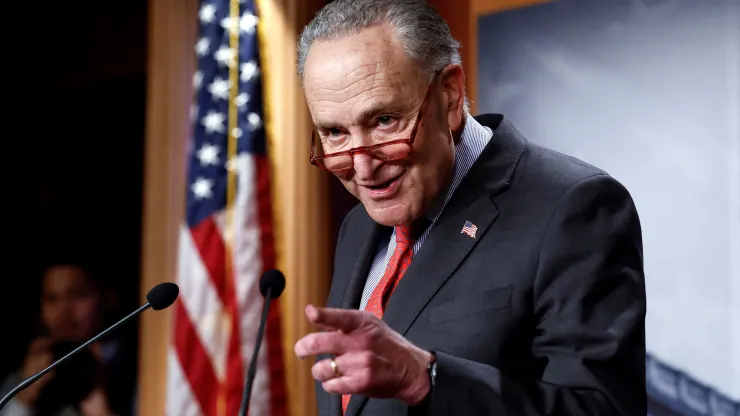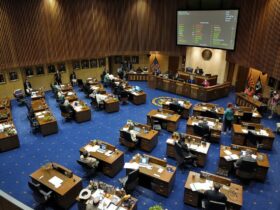United States – The U.S. Senate is scheduled to pass the bill funding several federal agencies until September on Friday, Saturday, February 16, to avoid a midnight shutdown of a part of the government that would not be funded otherwise.
House Triumph Amidst Republican Division
The House of Representatives on Wednesday evening, by 339 votes to 85, passed the entire package of fiscal 2024 budget bills needed to keep the approval of international trade agreements, housing, agriculture, transportation, consumers, veterans, and other services, as reported by Reuters.
However, the Republican House speaker, Mike Johnson, concluded that his 83 members voted “no,” which meant the presence of the opposition Democratic members was not only necessary but also vital to the bill’s passage.
After all, the vote relieved the right Republicans, who had sought steeper budget cuts amid the USD34.5 trillion national debt.
Resolution of Year-Long Struggle
This, however, wrapped up a struggle of more than a year in the House, as the party’s defiant conservative – the House Freedom Caucus – created internal battles over the selection of the speaker, not once but twice, and delayed or blocked passage of 12 of the yearly spending bills needed for the country to continue operating.
In spite of that, the Republicans of the House Appropriations Committee maintained their optimism and even claimed that by passing the bill, they had managed to divert the implementation of increasing government spending back to a path of sustainability as they had promised voters in the 2022 campaign.
House Democrats are saying that they also brought down the Republican chaos and that the budget impasse has also been ended.
“House Democrats are Team Normal … House Republicans and Donald Trump are Team Extreme,” said Representative Pete Aguilar, who heads the House Democratic Caucus.
“They lurch from crisis to crisis,” he added.
In the Senate, the bill is supposed to pass easily with little trouble and sent to President Joe Biden for signing. Still, that is not going to be the end of the fight for funding for the fiscal year that started in October.
Senate Approval and Future Challenges
Next on the agenda will be the controversy over a package of bills to be provided to the military, homeland security, health care and financial services plus the annual appropriation for foreign operations and others. This is the deadline that Congress must be able to abide by March 22 in passing these.
These bills were supposedly going for permission into the law last October 1, which is the commencement of the 2024 fiscal year. Even though it is a rare case that Congress actually meets the deadline, this time it was an especially long and sloppy backlog in decision-making.
In those past spending fights, Congress breached the midnight deadline it was supposed to keep and resorted to the weekend work sessions to achieve the breakthrough, as reported by Reuters.
Thus far, Congress has had to support four temporary funding bills to maintain the normal functioning of agencies until the allocated amounts of the prior year level become effective.


















